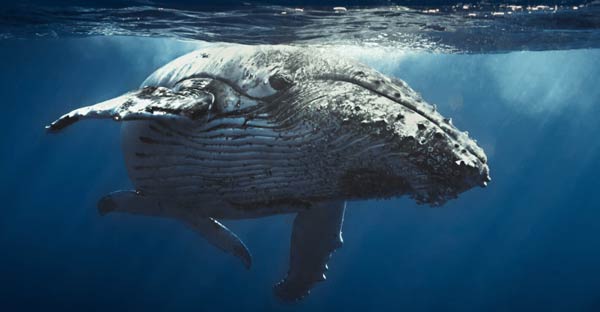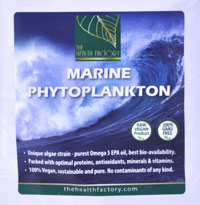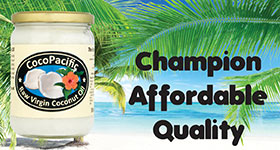|
|
Marine phytoplankton: Harnessing the Nutritional Power of the Oceans |
|
Piers More Ede, an author and journalist (most recent book – Kaleidoscope City: A Year in Varanasi) has suffered from Chronic Fatigue Syndrome for over 20 years. Of the many hundreds of supplements that he has swallowed over those years, phytoplankton – a vegan fish oil!! – has proved to be by far the most effective. So much so that he is now selling it and is offering Foodsmatter readers a 10% discount. |

Marine phytoplankton - also known as microalgae - are amongst the world’s smallest plants. As the primary photo synthesising agents on our planet, they are responsible for creating the oxygen rich environment in which we live. Added to which, their ability to turn the basic energy of the sun into chemical energy, makes them the foundational elements of the entire aquatic food chain. In recent years, however, health practitioners have joined scientists in beginning to explore the enormous benefits that marine phytoplankton can offer us. Humans have a long history of eating microalgae: certain tribes in Africa have harvested freshwater spirulina as part of their traditional diets for thousands of years. It even said that the British government conceived of plans to harvest tons of plankton from Scottish lochs in the event of food supplies becoming short during World War II. Fast-growing and intensely nutritious, these plants contain almost everything human beings need to survive. The bowhead whale, as an example, eats almost 2000 KG of plankton per day, reaching almost a century in age and maintaining extraordinary strength and speed right until their deaths. Could it be that those whales know a thing or two? From biofuel to Green FoodWhile scientists have long recognised microalgae’s potential to become an important plant for humanity, research over the last 20 years has been predominantly focused on its use as a potential biofuel. Algae contains unusually high quantities of fatty acids which, combined with its rapid lifecycle, made it one of the strongest contenders for the crop that was going to fuel the next century. While the biofuel phenomenon never panned out (the result was effective but prohibitively expensive) the algae research promoted by fuel interests did result in significant advances. In an effort to mimic the algal blooms that colour vast swathes of the deep ocean, scientists developed ‘bioreactors’ - essentially large indoor greenhouses made of miles of interconnected glass tubing. In these conditions, they refined both the methods of growing phytoplankton, and the particular strains that offered the greatest potential benefits to humans. In the void left by the great biofuel race, these production facilities have been quickly turned over to producing phytoplankton for human consumption. By drying it carefully into a finely concentrated green powder, scientists realised that the same plant material that could have powered vehicles was in fact one of the most nutritious, easily absorbable foodstuffs ever created. Nature’s higher source of long chain omega-3The health benefits of long chain omega three oils from cold water fish are well documented. But as one of the world’s most popular supplements, demand is now beginning to exceed supply. There are simply not enough fish left in the oceans to match this multibillion-dollar industry, while the fish that continues to be harvested displays alarming levels of heavy metal contamination. Here, phytoplankton is offering an exciting alternative. Not only is it the only known plant with the long chain omega three fatty acids that make fish oil so beneficial, it can commercially be produced in environments completely free of toxicity. For vegans and vegetarians, it also offers a chance to share the same benefits that fish eating cultures have long experienced. And all of this without depleting the world’s oceans. My own experience of marine phytoplanktonAfter twenty years of chronic fatigue, I’d spent thousands of pounds on supplements. This had left me with a faith in the power of superfoods (since many of them have helped) but a growing weariness of every really finding anything that could radically improve my quality of life. Within 24 hours of ingesting marine phytoplankton for the first time, however, I felt a surge of energy in my body beyond anything I could remember. There was a basic sense of wellbeing and possibility flowing through my veins again and, within a few days, this only increased. Within weeks, my energy was at unrecognisable levels, and people all around me were commenting on how healthy I looked. There was no doubt in my mind that the phytoplankton was helping me on a level that no other supplement had ever come close to. But what was so different about it? Why is phytoplankton so powerful: a theory?As a journalist of many years, my first instinct upon discovering how powerful phytoplankton could be, was to research it as deeply as I could. I wanted to understand why this unassuming looking green powder had affected me where so many others hadn’t. In addition to the impressive nutritional profile of the plant, one factor jumped out. Phytoplankton is 5-7 times smaller than a red blood cell - As per my current view, the small cell size of the phytoplankton appears to be the most probable reason for its efficacy. We’ve all read articles suggesting that the body simply cannot absorb much of what we take in, and this may be particularly true in people with impaired digestive function. When you eat a spoonful of phytoplankton powder, however, the substance is small enough to absorbed directly into the blood stream without needing to run the gauntlet of the body’s mitochondrial system before ending up as energy. Phytoplankton offers ATP, the basic energy currency of the human body, in a way that can be easily absorbed. I believe this makes it different from any other supplement on the market and as such a powerful tool for those suffering from ME, CFS, or fibromyalgia type conditions. Several years later.....Several years after my initial encounter with phytoplankton, I am more intrigued by this substance than ever. While it hasn’t completely cured my CFS, it has certainly given me back my life and I continue to notice improvements as time goes by. I’ve also recommended it to scores of people facing a broad range of health challenges now and, without exception, all of them have reported a sense of wonder at how powerful this humble plant really is. For my part, I appreciate too the simplicity, as the world becomes more futuristic, of ingesting our most ancient plant - many billions of years old - and deriving fundamental nutrition from something which captures the energy of the sun. Editor: 
So excellent does Piers believe the phytoplankton to be that he has created a website, Plankton for Health, where you can learn more about it – and is also now selling the powder. Peirs suggest that you take half a level teaspoon (approx 1 gram) a day to start with in a few fingers of water, juice or a smoothie. Once you are sure that it agrees with you, you can increase the dose if you wish to.
Click here for more articles on superfoods Click here for LINKS to manufacturers of nutrition and food supplements Back to top |








